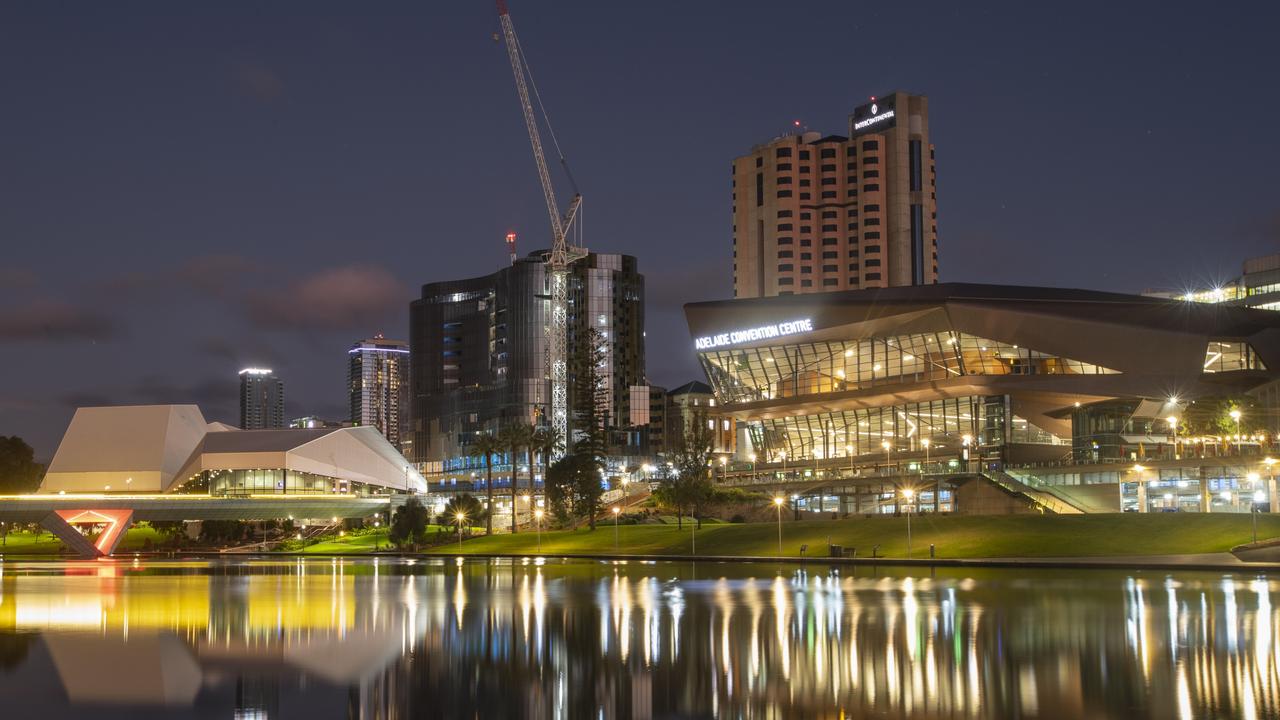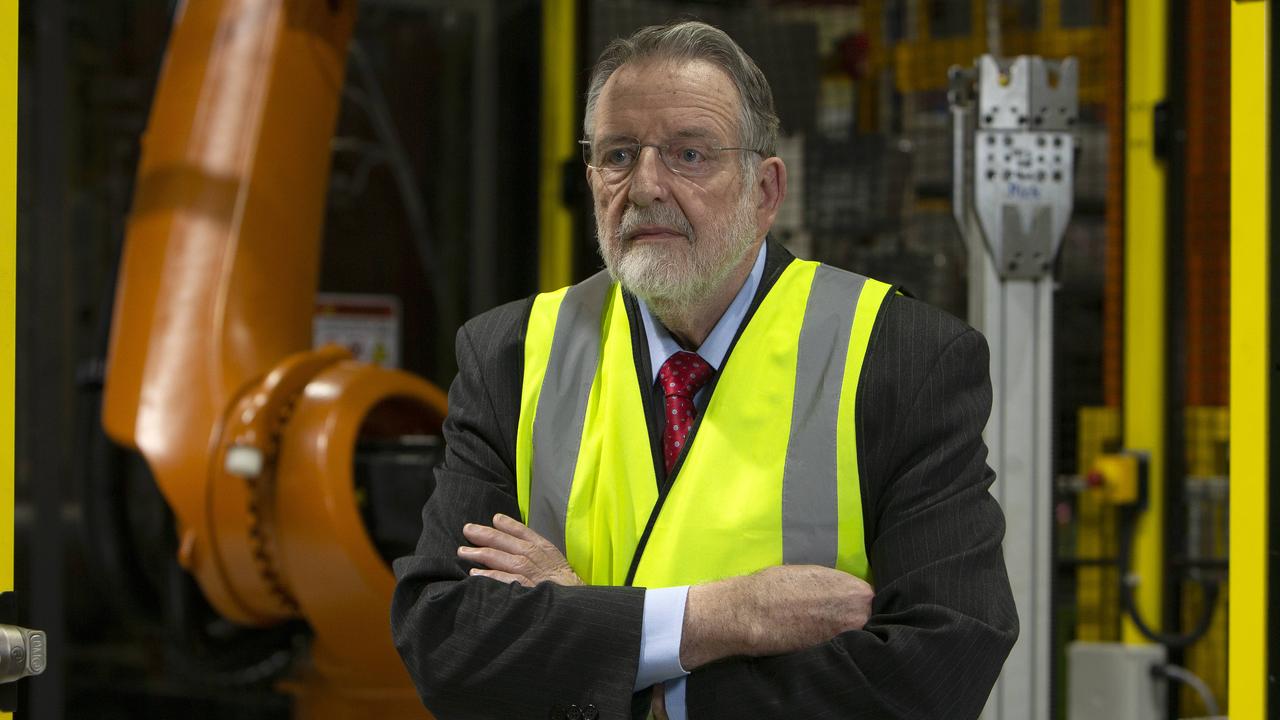Call for non-commercial kangaroo cull as large numbers cause havoc for farmers in SA
Huge numbers of kangaroos are causing fear on outback roads and leaving a path of destruction for farmers in South Australia and they search of food and water, prompting calls for a brutal cull.
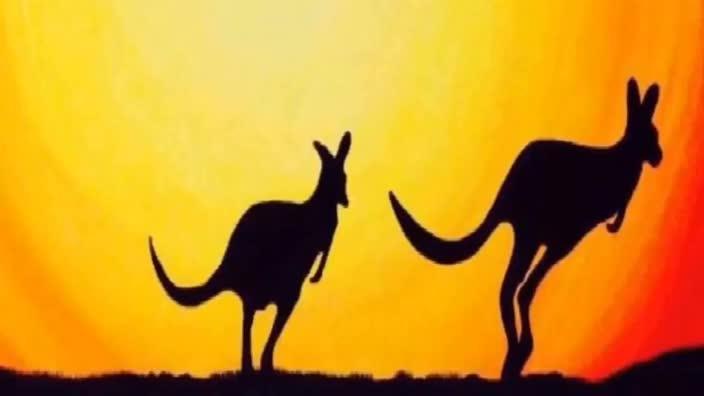
SA Business
Don't miss out on the headlines from SA Business. Followed categories will be added to My News.
Kangaroos are leaving a path of destruction as they travel south in search of food and water, prompting calls for a non-commercial cull and a greater focus on export markets.
Livestock SA president Joe Keynes said more must be done to manage the roo population, which is causing increased grazing pressure during an already difficult dry year.
“One pastoralist said to me he wouldn’t have been feeding hay to his livestock since August if he didn’t have the kangaroo pressure,” Mr Keynes said.
“Considering the current conditions, people are feeling the impact of kangaroos more than ever and the numbers are an issue across the whole state.”
There are an estimated 4.4 million kangaroos in South Australia, slightly down on about 5 million in 2017 — the highest figure in more than a decade.
The population number has more than doubled since 2012.
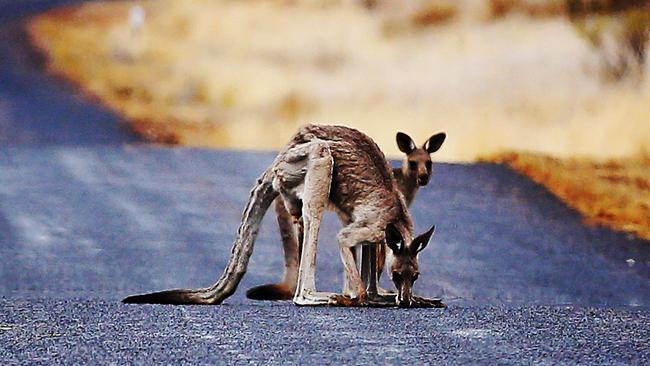
But while the overall number has dropped, farmers in the southern Flinders Ranges and Mid North particularly are battling large mobs heading south as food resources diminish.
Huge numbers are also present along SA’s highways and roads, presenting a danger for drivers inside and out of country towns.
Some motorists report not being able to travel faster than 90km/h at dusk.
Kangaroos are responsible for about 60 per cent of animal-and-car collision claims made to the RAA, which jumped from 911 to 1734 in 2017-18.
“We need to look at ways to manage the kangaroo population in the future and that includes non-commercial culling,” Mr Keynes said.
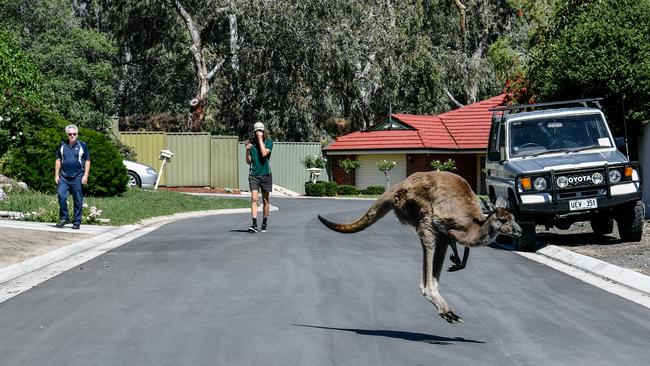
“We need to see how we can do that and the efficiencies of doing that.”
He said the export market must become more viable for premium kangaroo meat and leather, which has dropped off in recent years, to ease the pressure.
Environment Department regional programs acting director Stuart Paul said they understood the environmental damage and losses for farmers and last year increased the number of kangaroos allowed to be destroyed on non-commercial destruction permits.
“Because of the numbers of kangaroos people have, we’ve issued quite a lot (of permits) over the past 12-18 months, than we have in the years prior,” Mr Paul said.
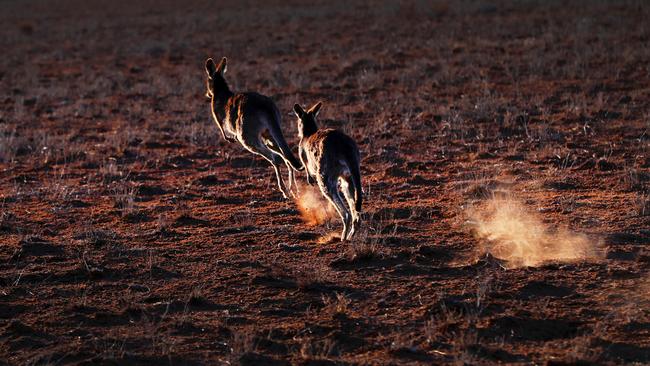
“It’s increased about fourfold, so there were 40,000 permits in 2017 and this year there won’t be a drop in destruction permits.
“Landholders may also call on commercial field processors if they are within the commercial harvest zone, but kangaroo species must be harvested in accordance with the quotas declared annually.”
Permits allow the landholder to harvest a ranging number of kangaroos, the lowest being 100.
Only about 100,000 kangaroos — of an annual quota usually exceeding 500,000 kangaroos — are commercially harvested in South Australia each year.
The South-East is not included in the commercial harvest zone, or in the population count, as the region falls within a conservation status under the National Parks and Wildlife Act.
Mr Paul said the eastern grey kangaroo, which is present in the South-East, are in good numbers and they were reviewing the conservation status.

